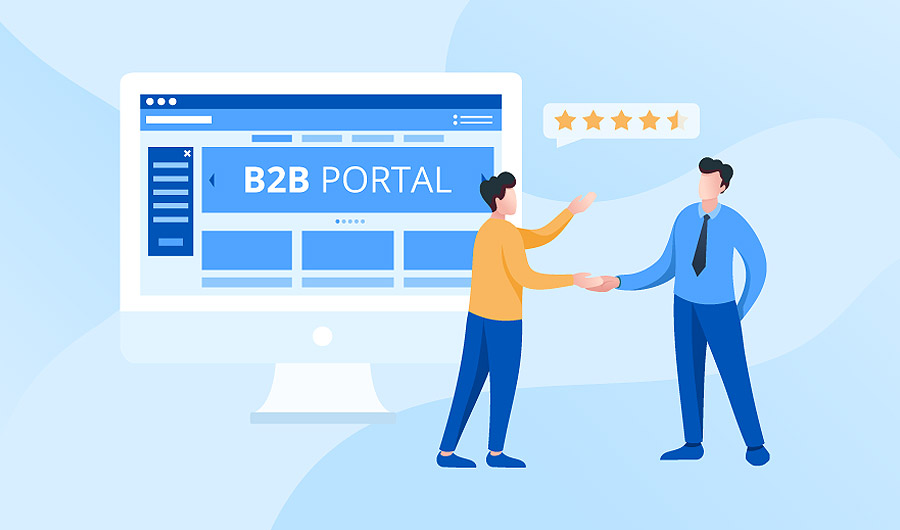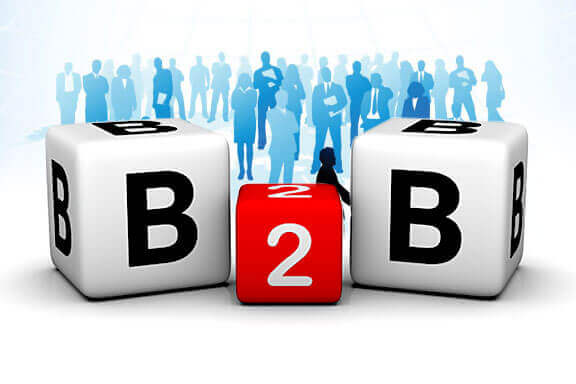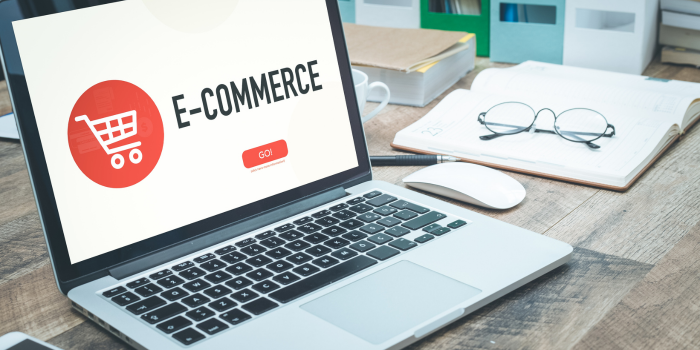What is B2B E-commerce? Top 7++ Most Reputable E-commerce Platforms
Learn about B2B (Business-to-Business) e-commerce: concept, advantages, disadvantages, and how it works. Get the latest trends and effective strategies for businesses to maximize the potential of B2B.

1. B2B E-commerce
B2B (Business-to-Business) e-commerce is a form of commercial transaction where buying, selling, and exchanging of goods, services, or information takes place between businesses through online platforms. Unlike B2C (Business-to-Consumer) e-commerce, where businesses sell directly to end consumers, B2B focuses on transactions between organizations, manufacturers, wholesalers, and suppliers.
B2B e-commerce often involves more complex processes and larger transaction values than B2C. These transactions typically include:
- Sales Contracts: Negotiated and signed between businesses.
- Ordering and Order Processing: Carried out through electronic order management systems.
- Payments and Credit: Using electronic payment methods and corporate credit policies.
- Delivery and Logistics: Managed through online logistics and warehousing systems.
B2B e-commerce platforms provide numerous tools and features to help businesses optimize their business processes, such as Customer Relationship Management (CRM), Supply Chain Management (SCM), and Enterprise Resource Planning (ERP) systems. These features help businesses save time, reduce operational costs, and enhance business efficiency.
B2B e-commerce is growing rapidly and has become an indispensable part of many modern businesses' strategies, contributing to global growth and market expansion.

2. B2B E-commerce Models
B2B e-commerce includes many different models, each suitable for specific types of businesses and business goals. Here are some common B2B e-commerce models:
2.1. E-Marketplace Model
An e-marketplace is an online platform where multiple sellers and buyers can meet and conduct commercial transactions. B2B e-marketplaces provide an intermediary environment for businesses to exchange goods and services.
- Examples: Alibaba, Amazon Business.
- Benefits: Offers more choices for buyers, reduces search costs, and enhances market access for sellers.
2.2. Supplier-Oriented Model
In this model, a single supplier creates an e-commerce platform to sell directly to multiple buyers. This is a common form for large manufacturing companies or service providers.
- Examples: Websites of manufacturers like Dell, Cisco.
- Benefits: Better control over product pricing and quality, and builds long-term relationships with customers.
2.3. Buyer-Oriented Model
In this model, a large buying business creates an e-commerce platform to invite multiple suppliers to bid on providing goods and services. This is a popular model for businesses with large and diverse procurement needs.
- Examples: Electronic bidding systems of large corporations.
- Benefits: Increases competition among suppliers, helps reduce costs, and improves service quality.
2.4. Intermediary-Oriented Model
The intermediary model uses third-party service providers to create an e-commerce platform that connects buyers and sellers. These intermediaries often provide value-added services such as payments, logistics, and technical support.
- Examples: Logistics companies like FedEx, UPS with integrated e-commerce solutions.
- Benefits: Reduces the management burden for businesses, and provides professional and comprehensive services.
2.5. Collaborative Commerce Model
In this model, multiple businesses collaborate on a shared platform to optimize their supply chains and business processes. This model is suitable for industries with close linkages between businesses.
- Examples: Manufacturing alliances in the automotive or aerospace industries.
- Benefits: Optimizes operational efficiency, shares costs and risks, and enhances competitiveness.

3. The Role of B2B E-commerce
B2B (Business-to-Business) e-commerce plays a crucial role in promoting economic development and enhancing the operational efficiency of businesses. Here are some key roles of B2B e-commerce:
3.1. Enhancing Business Efficiency
B2B e-commerce helps automate business processes, from ordering and inventory management to payments and logistics. This not only minimizes human error but also saves time and operational costs. Businesses can better manage resources, optimize production and distribution processes, thereby improving business efficiency.
3.2. Expanding Markets and Reaching New Customers
With a B2B e-commerce platform, businesses can easily access and transact with partners globally. This helps expand markets, increase sales, and create new business opportunities. B2B e-commerce also gives small and medium-sized enterprises a chance to compete in the international market, thanks to the ability to quickly and effectively access information and customers.
3.3. Improving Partner and Customer Relationships
B2B e-commerce platforms provide Customer Relationship Management (CRM) tools that help businesses maintain and develop relationships with partners and customers. This not only helps improve customer satisfaction but also enhances loyalty and creates long-term cooperative relationships.
3.4. Increasing Competitiveness
In today's modern business environment, competition is increasingly fierce. B2B e-commerce helps businesses optimize costs, improve the quality of products and services, thereby increasing their competitiveness in the market. Businesses can quickly grasp market trends, adjust business strategies, and meet customer needs flexibly and effectively.
3.5. Enhancing Management and Decision-Making Capabilities
B2B e-commerce platforms provide data analysis and detailed reporting tools, helping businesses get timely and accurate information. This supports managers in making strategic decisions, forecasting market demand, and optimizing business operations. The ability to effectively manage information and data is a key factor for sustainable business development.
3.6. Supporting Sustainable Development
B2B e-commerce encourages the use of technology and automation solutions, reducing the use of paper and physical resources. This not only helps protect the environment but also moves toward a sustainable economy. Businesses can implement environmentally friendly business strategies and enhance social responsibility.

4. Advantages of B2B E-commerce
B2B e-commerce brings many practical benefits to businesses, helping to optimize business operations and increase efficiency. Here are some notable advantages of B2B e-commerce:
4.1. Market Forecasting
B2B e-commerce allows businesses to use Big Data and advanced analytical tools to forecast market trends and customer needs. This helps businesses make accurate strategic decisions, seize business opportunities, and minimize risks.
4.2. Time and Cost Savings for Buyers
Purchasing through a B2B e-commerce platform helps businesses save time and costs compared to traditional purchasing methods. Ordering, payment, and delivery processes are automated, reducing paperwork and optimizing the sales process.
4.3. Optimizing Operational Costs
B2B e-commerce helps businesses optimize operational costs by automating business processes, minimizing errors, and enhancing operational efficiency. Businesses can better manage resources, thereby saving costs and increasing profits.
4.4. Expanding Sales Channels
B2B e-commerce platforms allow businesses to expand their sales channels, reaching more new customers and partners globally. This helps businesses increase sales and grow their market quickly and effectively.
4.5. Leveraging User Data
B2B e-commerce provides businesses with the ability to collect and analyze detailed user data. This helps businesses better understand customer needs and behaviors, thereby developing effective marketing and sales strategies.
4.6. Enhancing Customer Experience
B2B e-commerce platforms focus on improving the user experience, from friendly and easy-to-use interfaces to professional customer support services. This helps businesses retain customers, increase satisfaction, and build long-term relationships.
4.7. Personalization
B2B e-commerce allows businesses to provide personalized solutions and products that suit the specific needs of each customer. Personalization not only helps increase customer satisfaction but also creates a competitive advantage for the business.
4.8. Improving Inventory Management
B2B e-commerce allows businesses to effectively track and manage inventory through modern inventory management systems. This helps minimize product shortages or surpluses, optimizes the supply chain, and reduces warehousing costs.
4.9. Enhancing Collaboration and Connectivity
B2B e-commerce platforms facilitate businesses to connect and collaborate with many business partners worldwide. This helps expand the partner network, create new business opportunities, and promote sustainable development.
4.10. Accelerating Decision-Making
Thanks to the timely collection and analysis of data, B2B e-commerce helps managers make quick and accurate decisions. The ability to access real-time information helps businesses react flexibly to market fluctuations and adjust strategies promptly.
4.11. Reducing Geographical Barriers
B2B e-commerce breaks down geographical barriers, allowing businesses to access global markets without being limited by distance. This is especially important in the context of current globalization and economic integration.

5. Disadvantages of B2B E-commerce
While B2B e-commerce brings significant benefits, it also has disadvantages and challenges that businesses need to be aware of:
5.1. Limited Market
Some industries or regions may face market limitations when adopting B2B e-commerce. This can be due to factors such as underdeveloped technical infrastructure, restrictive legal regulations, or traditional business habits of businesses that are not ready to change.
5.2. Reversed Model Structure
The transition from a traditional business model to B2B e-commerce can sometimes be difficult due to the complexity of new processes and systems. A reversed model structure may require major organizational, management, and procedural changes, causing resistance from employees and partners.
5.3. High Cost of Building an E-commerce Website
Building and maintaining an effective B2B e-commerce system requires a significant investment in technology, infrastructure, and human resources. This cost includes software development, hardware purchases, security costs, and employee training costs. For small and medium-sized enterprises, bearing these costs can be a major challenge.
5.4. Difficulty in Making Purchasing Decisions
In B2B e-commerce, purchasing decisions are often more complex than in B2C because they involve multiple parties and strict evaluation processes. This can lead to extended decision-making times, affecting transaction speed and business opportunities.
5.5. Security and Safety Issues
B2B e-commerce frequently handles large transactions and sensitive data, so security and safety are always a top concern. Cyberattacks, data leaks, and fraud can cause serious damage to the business and erode the trust of partners and customers.
5.6. Dependence on Technology
B2B e-commerce is highly dependent on technology and technical infrastructure. If the system fails or is not properly maintained and upgraded, it can disrupt business operations, lead to revenue loss, and affect the company's reputation.
5.7. Adaptability and Change
Transitioning to B2B e-commerce requires businesses to be able to adapt and change quickly. This is not only related to technology but also to organizational culture, business processes, and management methods. Businesses may find it difficult to change traditional ways of working and train employees to get used to the new system.

6. New Trends in B2B E-commerce
- Integration of AI and Machine Learning: B2B businesses are applying AI and machine learning to optimize business processes, forecast demand, and improve customer experience.
- User Experience Optimization: B2B platforms are increasingly focused on creating the best user experience, from friendly user interfaces to professional customer service.
- Development of Mobile E-commerce Platforms: With the development of mobile technology, B2B platforms are also shifting to mobile applications to increase flexibility and convenience for users.
- Use of Big Data: Big Data helps B2B businesses better understand the market, trends, and customer needs, thereby making accurate and effective business decisions.
7. Top 7 Best B2B E-commerce Platforms Today
Here is a list of the top 7 best B2B e-commerce platforms today, along with a brief description of each:
7.1. Alibaba
Alibaba is one of the world's largest B2B e-commerce platforms, allowing businesses to connect with suppliers and buyers globally. Alibaba offers a wide range of products and services, from raw materials to finished products, with diverse security and payment support features.
7.2. Amazon Business
Amazon Business is the B2B version of the Amazon platform, providing specialized products and services for businesses. Amazon Business allows businesses to shop at discounted prices, track orders, and manage spending effectively. It also offers features such as multiple user accounts and data analysis tools.
7.3. TradeIndia
TradeIndia is a leading B2B e-commerce platform in India, connecting manufacturers, suppliers, and exporters with buyers worldwide. TradeIndia provides a rich database of products and services, supporting businesses in finding partners and expanding their market.
7.4. Global Sources
Global Sources is an international B2B e-commerce platform specializing in providing solutions to connect businesses with manufacturers and suppliers in Asia. Global Sources is known for its online trade shows and professional consulting services, helping businesses find quality and reliable sources.
7.5. Made-in-China
Made-in-China is a famous B2B e-commerce platform in China, offering a wide range of industrial and consumer products from Chinese manufacturers. The platform provides quality inspection services, logistics support, and secure payment solutions, helping businesses find trustworthy partners.
7.6. ThomasNet
ThomasNet is a B2B e-commerce platform in the United States, focusing on industrial products and technical services. ThomasNet provides detailed search tools, a supplier directory, and rich technical information, helping businesses connect with suitable partners and enhance business efficiency.
7.7. EC21
EC21 is an international B2B e-commerce platform based in South Korea, specializing in providing products and services from suppliers worldwide. EC21 supports businesses in finding business partners, importing and exporting goods, and developing global markets.
8. Should You Build a B2B E-commerce Website?
Here is a summary table of the benefits and challenges of building a B2B e-commerce website:
Benefits | Challenges |
Expanded Customer Reach | High Investment Cost |
Access to global customers, increasing business opportunities. | Significant investment in technology, infrastructure, and human resources. |
Increased Sales Efficiency | High Technical Requirements |
Automated processes, saving time and costs. | Requires specialized knowledge in technology and system management. |
Improved Customer Experience | Organizational Culture Change |
Provides detailed information and online support services. | Requires changes in processes and organizational culture. |
Data Utilization | Security and Legal Compliance |
Integrates management systems and analyzes customer data. | Must comply with legal regulations and security standards. |
Transparency and Security | Fierce Competition |
More transparent and secure transactions. | Competitive market requires continuous improvement and optimization. |
Building a B2B e-commerce website is a strategic decision that helps expand the market and improve business efficiency, but it requires considering costs, technical requirements, and a readiness for change. If a business has sufficient resources, it's a worthwhile decision.
9. GMAJOR - A B2B Business Connection Website
GMAJOR (https://gmajor.biz) is a leading brokerage platform specializing in connecting businesses in the B2B sector. With the goal of creating an effective bridge between business partners, GMAJOR provides a convenient and secure ecosystem for businesses to find, transact, and collaborate with each other. Our website not only offers flexibility in finding partners but also helps businesses optimize their buying and selling processes, saving time and costs. Visit and experience GMAJOR's services to discover potential business opportunities and expand your partner network.
Conclusion
In conclusion, the rise of B2B e-commerce platforms is revolutionizing global trade, offering businesses unprecedented access to new markets and partners. Leading platforms like Alibaba, Amazon Business, and Made-in-China provide comprehensive solutions for sourcing, managing transactions, and ensuring product quality. In Vietnam, local platforms such as VietGO, Alibaba Vietnam, and GMAJOR are empowering domestic companies to connect with the world. By leveraging these reputable B2B websites, businesses can enhance their efficiency, reduce costs, and build a competitive edge in the global marketplace.